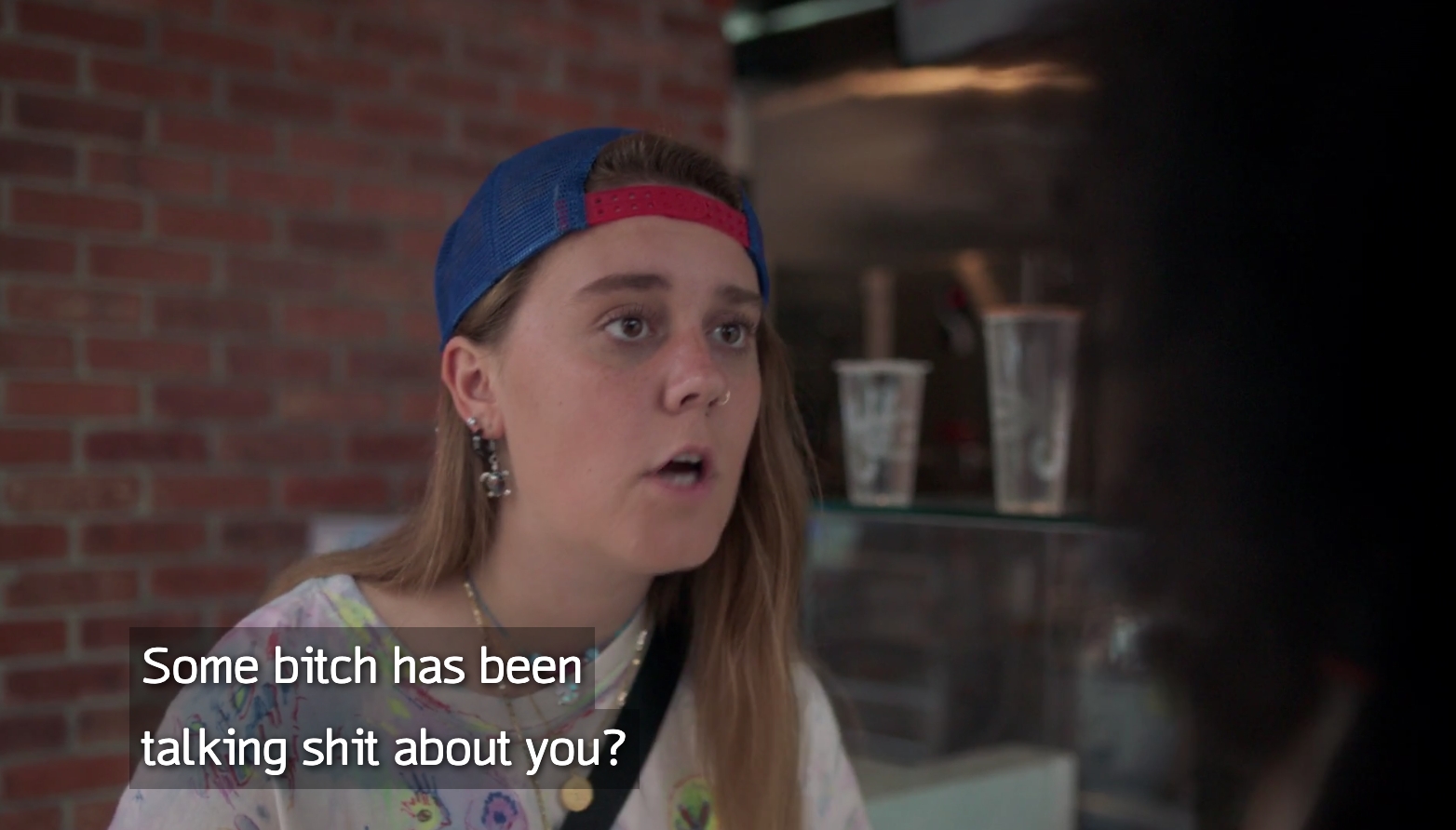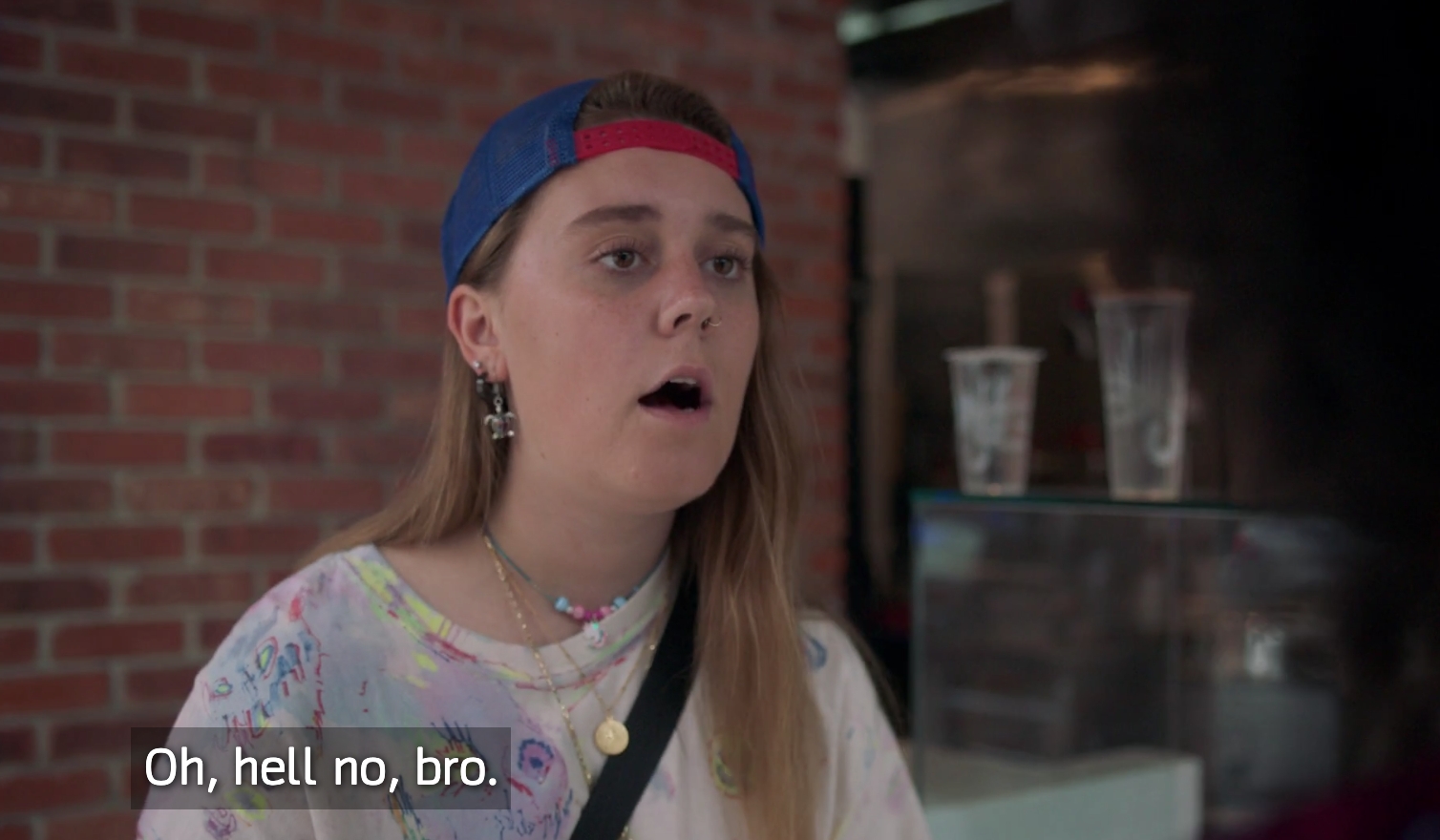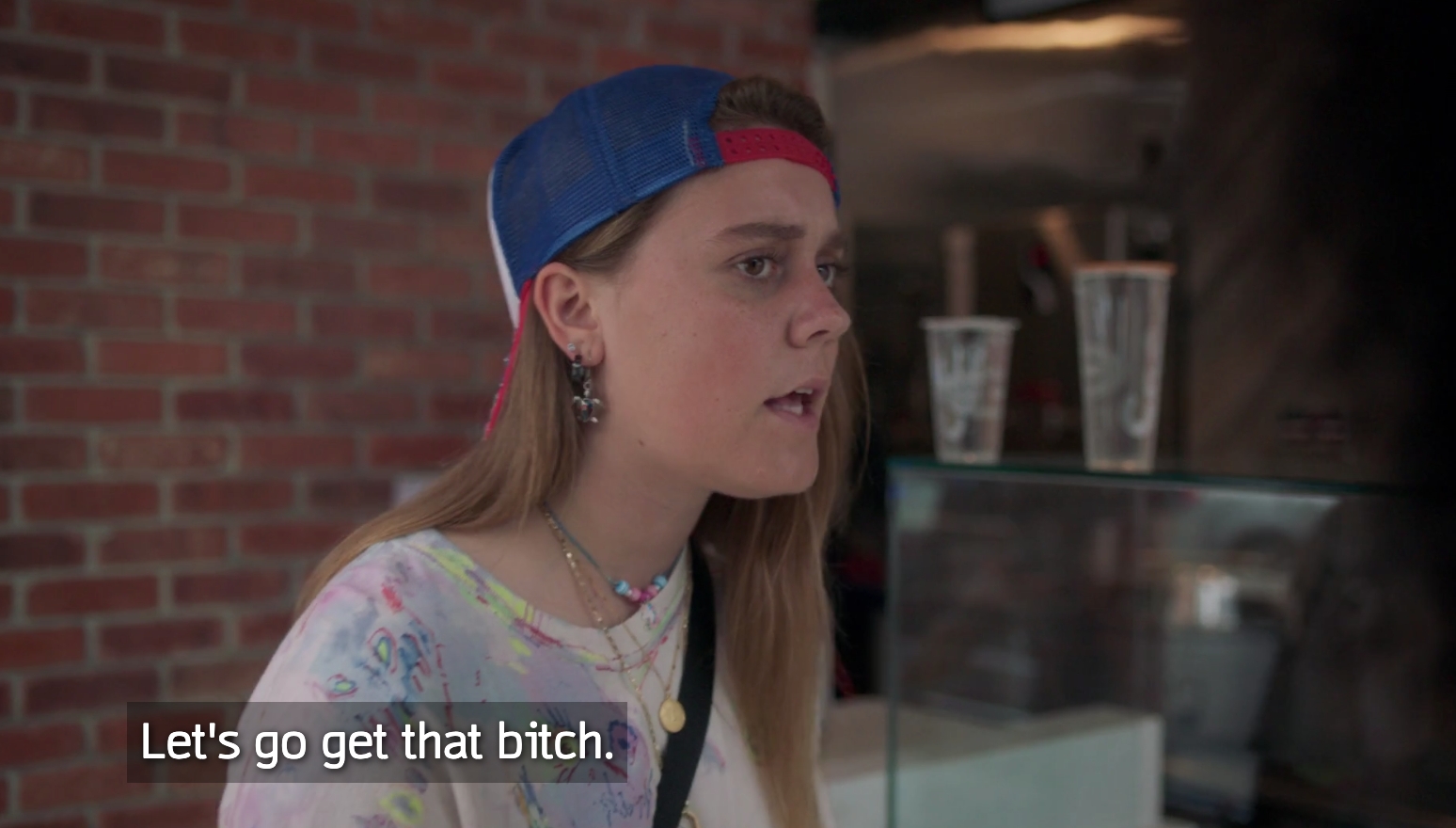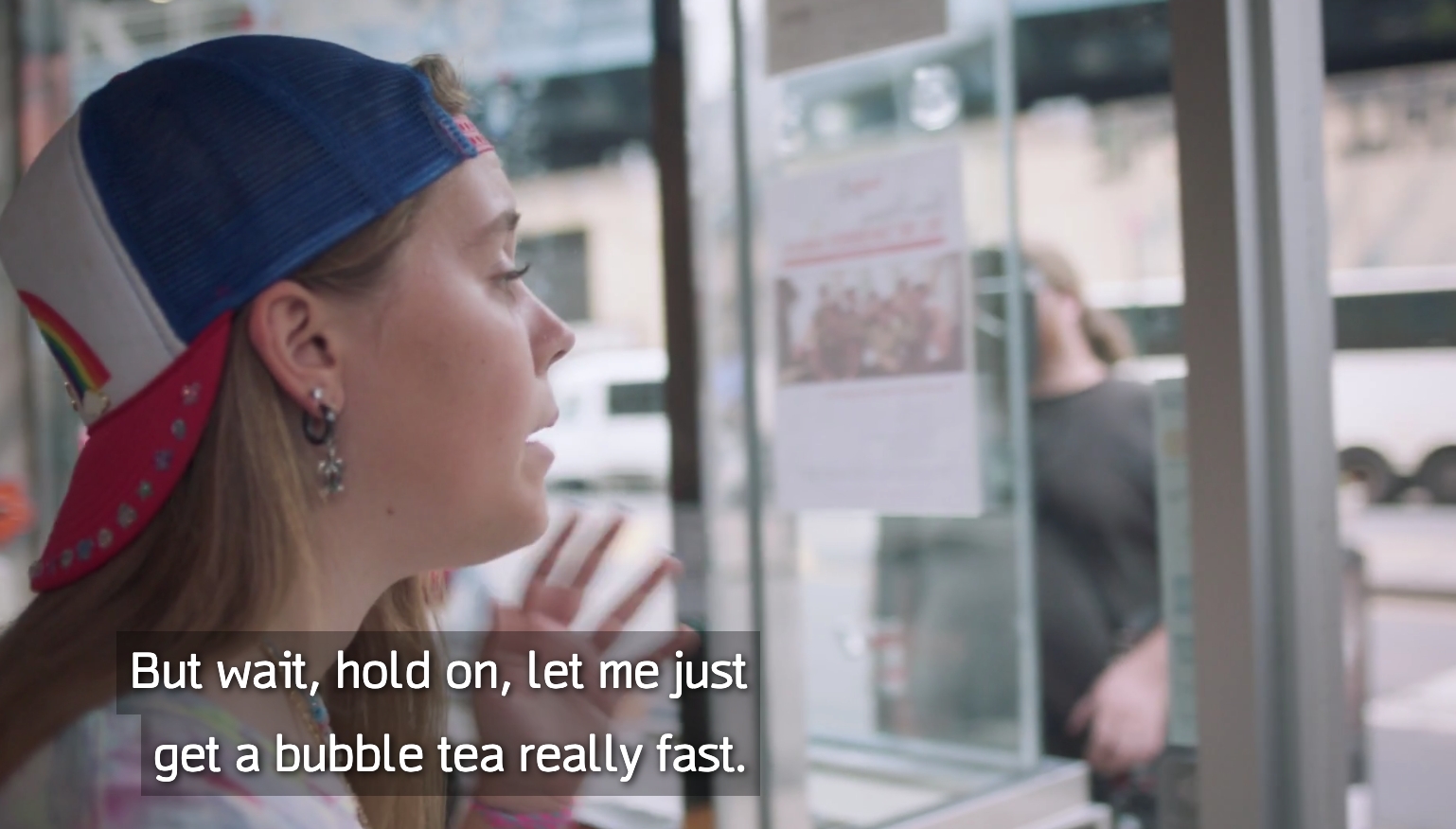I guess my biggest complaint about Betty is that it is torture. Not the show itself, or the plot, or the characters, or the acting. Those are all great. It’s the summer of it all that is killing me. Everyone is outside and hanging in groups and eating ice cream and popsicles and doing cool summer stuff that is not going to be an option for most of us this summer due to a virus whose name starts with six letters that also spell out the name of a decent beer to drink in the summer with a hunk of lime wedged into the bottle. That part is torture. Everything else is good, though. It’s a very cool show.
In fact, I don’t think there’s a cooler show on television. HBO handed a six-episode series to Crystal Moselle — director of the 2018 film Skate Kitchen, which shares a big chunk of story and cast with the show — and she in turn created a show that’s not entirely like anything else on television right now, or in recent memory. It’s breezy and fun and serious and… it’s just very cool. And a blast to watch. And features one of my favorite television characters of the year. But we’ll come back to that.
Some facts: Betty follows a group of teenage female skateboarders in New York as they, to quote various press materials, “navigate the male-dominated world of New York skateboarding.” And it is about that. Kind of. There are lots of cutaways to skateboard tricks and most of the action takes place in skate parks or on the way to or from a skate park. It’s mostly about friendship and growing up, though. There are large chunks of the show that just feature the characters talking about whatever they want, in a way that does nothing to advance any specific plot but builds out the show’s world to make it feel lived-in and real. Sometimes life is about stuff happening. Most of the time life is what you do between stuff happening. Betty gets that and makes it compelling. It’s a cool trick.
That’s not to say nothing happens on the show. Plenty of stuff happens, and is still happening. One of the characters, Janay (Dede Lovelace), is dealing with a male friend who was accused of unwanted sexual advances at a party. Another, Honeybear (Moonbear), has very conservative parents who don’t get just about any of her skater/artist deal. Another, Camille (Rachelle Vinberg), is new to the group and super-talented and stuck between the male skaters she admires and the females who support her. Another, Indigo (Ajani Russell), is a child of massive privilege who prefers to hang with the skaters and sell weed pens for a goofball drug dealer named Farouk who calls everyone — male, female, presumably dogs and cats — “buddy.” Everyone has something going on, but it’s rarely been the heavy focus of any episode. It’s just who they are, and they bring it with them wherever they go.
This brings us to Kirt, played by Nina Moran. Kirt is the best. She’s a stoner in baggy shorts and a backward hat who carries herself with the same energy as The Dude from The Big Lebowski if The Dude were a queer teen New York skateboarder. Most of the time. Sometimes she heaves a skateboard through a window in a misplaced attempt to support her friends. Sometimes she’ll break off a hookup right in the middle to go look for a popsicle. She calls everyone “bro” or “dude” regardless of gender or age and, yes, I would watch an entire episode where she and Farouk go on a road trip — Farouk drives a clunker van, although I feel like you probably knew that already, just by filling in the blanks — where they get lost and have entire hour-long conversations consisting of only the words “dude” and “buddy.”




Here’s the wildest part, or at least the wildest part for people who don’t know the story behind Skate Kitchen: none of the show’s core five skaters are actors. They weren’t actors, at least, not until all this got going. They were legit skateboard kids who Moselle ran into on a train and became fascinated by. It probably contributes a great deal to the very natural feel of the show. A lot of times, shows about teenagers suffer from a Theater Kid vibe that is always lurking a few inches below the surface. There’s too much polish, too much training for anything to feel fully authentic. This is not meant to imply that Betty is amateur hour. Lovelace especially has a serious arc to carry and is doing it well. There’s something to be said for pointing a camera at people with natural charisma and letting them do their thing. Betty is more professional than that, but not much. I mean this in a very good way, I swear. It’s loose and relaxed to a degree that matches its tone perfectly. Like I said earlier: unlike any other show on television.
The result of it all has been a fun late-spring watch, in large part because, again, it’s just very cool. The characters are cool, the stuff they’re doing is cool, the real-like skaters playing them are cooler than you’ll ever be. Hell, even the time slot is cool: Friday at 11 p.m., like it has no interest in shoving itself in your face, like it’s perfectly happy to sit back and let you find it if you happen to be in the right place at the right time.
It’s one of my favorite things about television in 2020, stumbling into a show like this that catches you off-guard. I had no reason to expect the show to be bad, but it is a little surprising — and more than a little fun — that I, a dude in his 30s who grew up in the suburbs and never mounted a skateboard, is now this invested in a show about female skateboard teens in the big city. There’s a lot of stuff out there that can open your world up a little if you seek it out. That’s cool. Television is cool. Betty is really, really cool.
I could use fewer shots of people eating ice cream together on a sidewalk, though. That’s still torture, only because it might be the closest any of us actually gets to having a summer this year. But it’s, like, good torture. If you work for HBO and need a pull quote for the show to put in commercials or on a billboard, there you go. Here to help.







